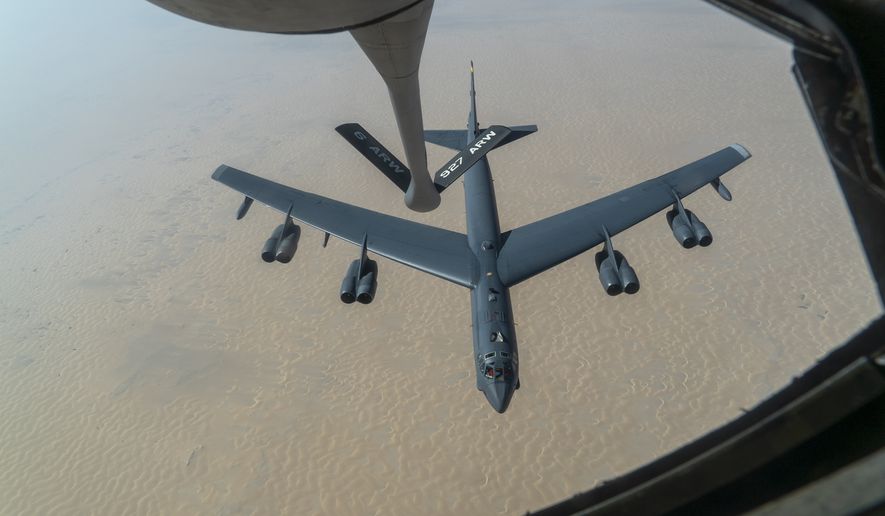President Biden’s decision to withdraw the last U.S. troops from Afghanistan may have overshadowed an equally important development in Congress designed to rein in the executive branch’s authority to fight “forever wars.”
A substantial cohort of Democrats and Republicans, including veterans of the two-decade-long conflicts, are trying to build support for repealing the use of military force authorizations passed by large, bipartisan majorities in 2001 (Afghanistan) and 2002 (Iraq).
Critics contend the resolutions gave four consecutive presidents, from George W. Bush to Mr. Biden, a blank check to wage the war on terrorism nearly anywhere in the world regardless of whether their military actions had any direct connection to the origins of the Sept. 11 terrorist attacks. They argue that withdrawing troops from the continuing wars in the Middle East is not enough: Congress must also reassert its constitutional prerogatives over war-making to prevent perpetual military adventurism in the first place.
“There is some political momentum. It’s a bit late, but the global war on terror has gone through four presidents now. I think a lot of Americans are trying to assess the costs and the rate of return on investment from all these various military interventions,” said John Glaser, the director of foreign policy studies at the libertarian Cato Institute think tank, in the latest episode of the History As It Happens podcast.
Mr. Glaser recently addressed the root causes of “forever war” in his own podcast about repealing the use of force authorizations.
As Mr. Biden said in his Afghanistan announcement, the war was not supposed to turn into a “multigenerational undertaking.” Yet 20 years later, the measure that gave Mr. Bush the authority to invade and bomb targets in Afghanistan remains on the books.
“That resolution has been stretched to apply to a myriad of security concerns and claims about terrorist threats throughout the Middle East, North Africa and even some places in Asia,” Mr. Glaser said.
“Rather than a relatively simple, straightforward authorization to pursue the perpetrators of 9/11 and those who helped them, it expanded into a nation-building project in one country, constant air war in several others, drone attacks, special operations forces — a borderless, expansive permission slip.”
When it comes to Iraq, U.S. presidents have exploited the 2002 resolution, which was passed 296-133, to launch airstrikes in neighboring countries such as Syria and Iran, he said.
As discussed on a recent episode of “History As It Happens,” the U.S. has used its influence and prestige fighting conflicts in the greater Middle East. The nation’s Cold War-era fighting machine, with its hundreds of military bases spread across the globe, has made the current U.S. commitments possible. Almost no part of the world is out of reach of American bombers, aircraft carriers or special operations forces.
“There is public support for rolling back our military interventions, but it is just not top of mind for [voters],” Mr. Glaser said. “The American people are increasingly isolated from the costs of war, or even the fact that we are at war.”
For more of Mr. Glaser’s observations about America’s endless wars and Congress’ role in war-making, listen to this episode of “History As It Happens.”




